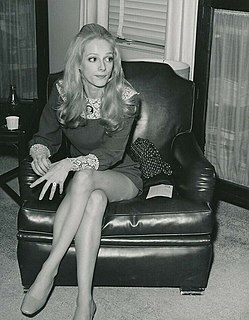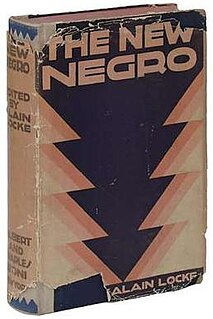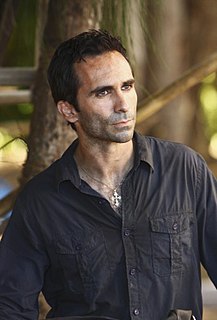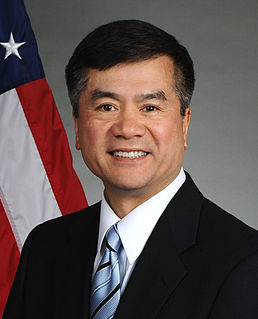See also
- Dick Locke, member of the Florida House of Representatives
Richard Locke may refer to:

John Locke was an English philosopher and physician, widely regarded as one of the most influential of Enlightenment thinkers and commonly known as the "Father of Liberalism". Considered one of the first of the British empiricists, following the tradition of Sir Francis Bacon, Locke is equally important to social contract theory. His work greatly affected the development of epistemology and political philosophy. His writings influenced Voltaire and Jean-Jacques Rousseau, and many Scottish Enlightenment thinkers, as well as the American Revolutionaries. His contributions to classical republicanism and liberal theory are reflected in the United States Declaration of Independence. Internationally, Locke’s political-legal principles continue to have a profound influence on the theory and practice of limited representative government and the protection of basic rights and freedoms under the rule of law.

Clinton Eastwood Jr. is an American actor, film director, producer, and composer. After achieving success in the Western TV series Rawhide, he rose to international fame with his role as the "Man with No Name" in Sergio Leone's "Dollars Trilogy" of Spaghetti Westerns during the mid-1960s and as antihero cop Harry Callahan in the five Dirty Harry films throughout the 1970s and 1980s. These roles, among others, have made Eastwood an enduring cultural icon of masculinity. Elected in 1986, Eastwood served for two years as the mayor of Carmel-by-the-Sea, California.

Sandra Louise Anderson, professionally known as Sondra Locke, was an American actress and director. She made her film debut in 1968 in The Heart Is a Lonely Hunter, for which she was nominated for an Academy Award for Best Supporting Actress. She went on to star in such hit films as Willard, The Outlaw Josey Wales, The Gauntlet, Every Which Way but Loose, Bronco Billy, Any Which Way You Can and Sudden Impact. She worked often with Clint Eastwood, who was her companion for 14 years. She also directed four films, notably Impulse. Locke's autobiography, The Good, the Bad, and the Very Ugly: A Hollywood Journey, was published in 1997.

The New Negro: An Interpretation (1925) is an anthology of fiction, poetry, and essays on African and African-American art and literature edited by Alain Locke, who lived in Washington, DC, and taught at Howard University during the Harlem Renaissance. As a collection of the creative efforts coming out of the burgeoning New Negro Movement or Harlem Renaissance, the book is considered by literary scholars and critics to be the definitive text of the movement. "The Negro Renaissance" included Locke's title essay "The New Negro," as well as nonfiction essays, poetry, and fiction by writers including Countee Cullen, Langston Hughes, Zora Neale Hurston, Claude McKay, Jean Toomer, and Eric Walrond.

"Walkabout" is the fourth episode of the first season of the American drama television series Lost. The episode was directed by Jack Bender and written by David Fury. It first aired on ABC in the United States on October 13, 2004.

"The Moth" is the seventh episode of the first season of Lost. The episode was directed by Jack Bender and written by Jennifer Johnson and Paul Dini. It first aired on November 3, 2004, on ABC. The character of Charlie Pace is featured in the episode's flashbacks.
"Lockdown" is the 17th episode of the second season of the American drama television series Lost, and the 42nd episode overall. The episode was directed by Stephen Williams, and written by executive producers Carlton Cuse and Damon Lindelof. It first aired on ABC in the United States on March 29, 2006.
"Further Instructions" is the third episode of the third season of the American science fiction television series Lost. It first aired on October 18, 2006, on the American Broadcasting Company (ABC), making it the 52nd episode of the series. The episode was written by showrunner Carlton Cuse and supervising producer Elizabeth Sarnoff and was directed by Stephen Williams.

Alain Leroy Locke was an American writer, philosopher, educator, and patron of the arts. Distinguished in 1907 as the first African-American Rhodes Scholar, Locke became known as the philosophical architect —the acknowledged "Dean"— of the Harlem Renaissance. He is frequently included in listings of influential African Americans. On March 19, 1968, the Rev. Dr. Martin Luther King Jr. proclaimed: "We're going to let our children know that the only philosophers that lived were not Plato and Aristotle, but W. E. B. Du Bois and Alain Locke came through the universe."
"The Man from Tallahassee" is the 13th episode of the 3rd season of Lost, and the 62nd episode overall. It was aired on March 21, 2007, on ABC. The episode was written by Drew Goddard and Jeff Pinkner and directed by Jack Bender. The character of John Locke is featured in the episode's flashbacks.
"The Man Behind the Curtain" is the 20th episode of the 3rd season of Lost, and the 69th episode overall. It was first aired on May 9, 2007, on ABC. The episode was directed by Bobby Roth and written by Elizabeth Sarnoff and Drew Goddard.

Richard Alpert is a fictional character played by Néstor Carbonell in the American ABC television series Lost. Alpert is introduced in the third season, specifically in a flashback of the character Juliet Burke, where he claims to be a doctor for a bioscience company called Mittelos Bioscience; he is later revealed to be a member of a native island faction called the Others, where he plays a role in the group's hierarchy that has been compared to that of the Panchen Lama in Buddhism by the series' producers.
Locke, sometimes spelled Lock or Lok, is a common Western surname of Germanic origin. It is also a Scottish surname and a romanization of the Chinese surname Luo.

Gary Faye Locke is an American politician and diplomat serving as the interim president of Bellevue College, the largest of the institutions that make up the Washington Community and Technical Colleges system. Locke previously served as the 10th United States ambassador to China (2011–2014) and as the 21st governor of Washington (1997–2005). He also served in the Obama administration as United States Secretary of Commerce (2009–2011).

"Follow the Leader" is the 15th television episode of the fifth season of ABC's Lost. The 101st episode of the show overall, "Follow the Leader" aired on May 6, 2009, on ABC in the United States. The episode was written by supervising producer Paul Zbyszewski and co-executive producer Elizabeth Sarnoff and directed by Stephen Williams. This episode marks the lowest recorded audience for Lost.

"LA X" comprises the 104th and 105th episodes of the American Broadcasting Company's Lost, marking the premiere of the sixth and final season. It was written by show runners/executive producers Damon Lindelof and Carlton Cuse and directed by executive producer Jack Bender. Both parts were aired on February 2, 2010, on ABC in the United States and CTV in Canada, and on February 4, 2010, on RTÉ Two in Ireland.
"The Substitute" is the fourth television episode of the American Broadcasting Company's sixth season of the serial drama television series Lost and 107th episode overall. The episode aired on February 16, 2010, on ABC. It was directed by Tucker Gates and written by executive producer Elizabeth Sarnoff and producer Melinda Hsu Taylor. John Locke is the character the episode is centered on.

The fictional character and the main antagonist on the American ABC television series Lost is most frequently referred to as The Man in Black. He appeared primarily as a cloud of black smoke until the final episode of season five where he appeared as a middle-aged man dressed in black. In season six, he primarily appeared in the physical form of John Locke. He exhibited the ability to "scan" the minds and memories of others, allowing him to confront characters such as Mr. Eko and Ben Linus, with "judgment", and to assume the forms and memories of the deceased, starting with the original Man in Black himself, his brother Jacob, or Christian Shephard, Yemi, Alex Rousseau, and Locke. According to Jacob, who explains this to Richard Alpert, it is the incarnation of evil, and its primary goal—to escape from the island—would be the "end of everything good".
Emilia Annis I. Jones is an English actress and singer. She is most known for her critically-acclaimed lead role in the 2021 film CODA as Ruby Rossi in which she received a Hollywood Critics Association Film Awards nomination for Best Actress. She is also known for playing Kinsey Locke in the Netflix series Locke & Key (2020–), while also having additional early roles in television such as Doctor Who and Utopia, and lead characters in films like Brimstone, Ghostland, and Horrible Histories. She also performed in several theatrical productions in the West End in London.

Locke & Key is a 2020 American fantasy horror drama television series developed by Carlton Cuse, Meredith Averill, and Aron Eli Coleite, based on the comic-book series of the same name by Joe Hill and Gabriel Rodríguez. It premiered on Netflix on February 7, 2020. The series stars Darby Stanchfield, Connor Jessup, Emilia Jones, Jackson Robert Scott, Laysla De Oliveira, Petrice Jones, and Griffin Gluck.